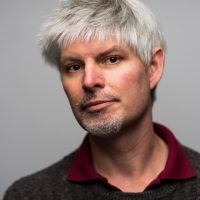SAFS Autumn 21 / Winter 22 Newsletter – Director’s Message
 Dear Friends,
Dear Friends,
This will be my last “From the Director” letter as my 10-year tenure as SAFS director is drawing to a close. It has been an exciting, enjoyable, challenging, and at times exhausting decade. We have seen numerous transitions in the School’s faculty, staff, and students, resulting in major changes in research, teaching, advising, and administration.
New faculty has meant more intensive work in freshwater science with the hiring of Gordon Holtgrieve; an emphasis on coral reef ecosystems, ecology of parasites, and ocean acidification once Jackie Padilla-Gamiño, Chelsea Wood, and Luke Tornabene joined us; and a new focus on behavior and movement ecology thanks to Andrew Berdahl’s programs. We also welcomed our first teaching professor, José Guzmán, (we are currently in the process of hiring our second), and we gained a new unit leader (Sarah Converse) and assistant unit leaders (Mark Scheuerell and Alex McInturff) for the Washington Cooperative Fish and Wildlife Research Unit. In addition, the impact of our teaching within the College of the Environment has expanded since the implementation of the Marine Biology major in 2018.
Sadly, several of our emeritus faculty have passed away in recent years. This issue of Aquatic & Fishery Sciences News celebrates the life and work of Professor Emeritus Lynwood Smith, who died on July, 30, 2021, having been on the School faculty from 1965 to 1993.
The pandemic has impacted all of us in profound ways. At SAFS, we have had to modify the way we teach and conduct research. It appears that COVID is on the wane in Washington, and the University has cautiously begun to work in-person again. In this issue, we highlight the thoughts of some of our community members on the 18 months of remote learning and the return to an in-person world.
Enhancing SAFS through increased diversity is an ongoing priority—the importance of which has been underscored by events of the last two years. Learn about the results of our recent Diversity, Equity and Inclusion (DEI) Assessment, some of the work being done in SAFS to increase awareness about DEI, and current activities to make SAFS a more equitable community, including a new program to increase underrepresented students in the Geosciences.
I would like to thank everyone for their gifts during the last year, which give the School the ability to support students who would otherwise not be able to attend the UW, as well as new ideas for research projects.
We profile an internship program that has introduced math and statistics students to problems in fisheries science, based largely on a gift to the School by Usha and Rao Varanasi.
Finally, I am pleased to announce that Tim Essington, associate director of SAFS from 2012 to 2019, and previous director of the Quantitative Ecology and Resource Management (QERM) Program has agreed to be the next director of SAFS. Tim’s leadership in SAFS and the College of the Environment, his outstanding contributions to teaching and research, and his commitment to sustainable use of marine ecosystems means that the School will be in good hands for the next five years. Welcome Tim.